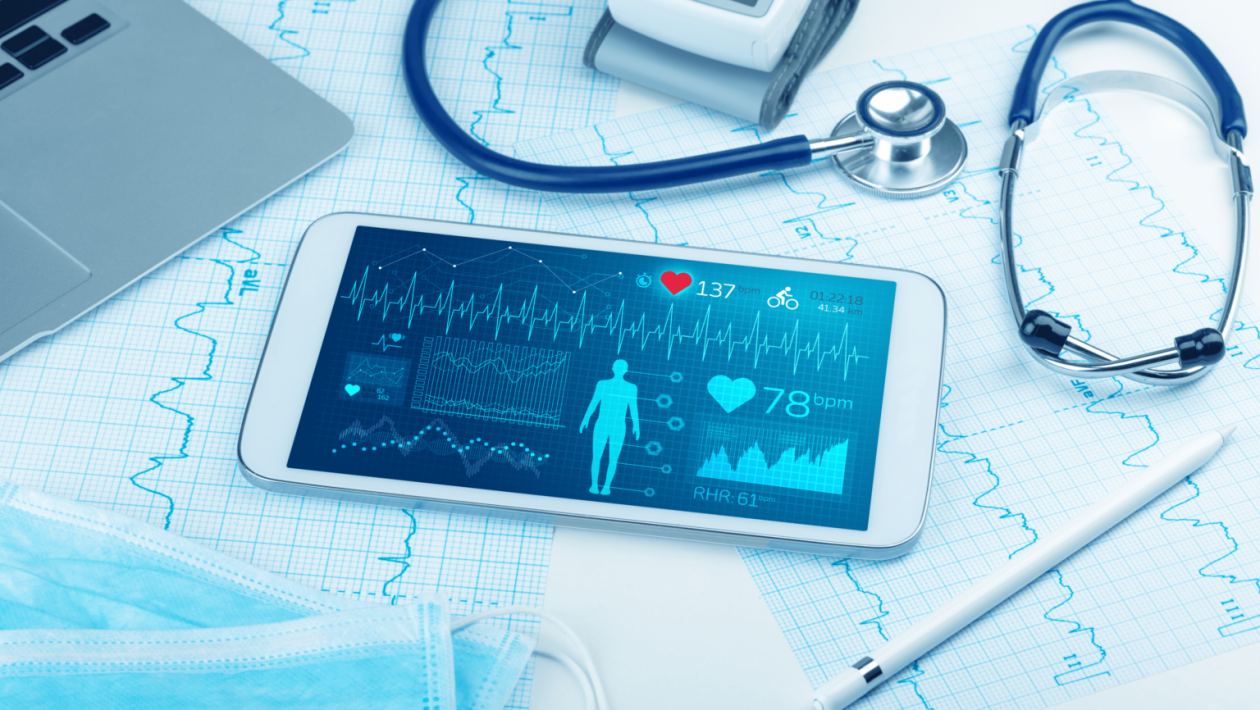In this era of digital transformation and immersive technological innovation, many industries (such as media and finance) have been positively and forever disrupted by digitization. However, if you look more narrowly at the last 10 years or so, you will find that the American healthcare sector has been much slower to embrace the near-global integration of new user-based technologies. Even with the numerous tech solutions that sprang up from the pandemic to support social distancing and COVID-19 era care, digitization in the healthcare industry still largely remains in its infancy.
Despite this slow burn, there are still a myriad of ways in which digital health management tools/technologies have revolutionized healthcare and reimagined the patient experience in the U.S. – priming the industry for even more massive transformations in the near future. Some of those present and future breakthrough wins include:
- More accurate and faster diagnoses – Using advanced technologies, doctors can provide accurate diagnoses of diseases in a much shorter time span. Computer-aided diagnoses often lead to less errors, and machine-learning technologies can even help predict possible ailments to ensure preventive steps can be taken in time.
- Enriched personalized care – Big Data technology has made it so much easier to gather important data about individual patients, analyze potential diagnoses and outcomes, and provide personalized services. Embracing this technology helps hospitals, nurses, doctors (etc.) more accurately and immediately store, process, and map out individual health records and their corresponding treatment plans. It also benefits patients with quicker, more accurate diagnoses and substantially shorter wait times.
- Easier access to medical services – Concerns regarding the access to primary care for aging folks in the U.S. can also be effectively diminished through the use of smart digital health assistants (such as newly launched Renee, which combines human support with advanced AI to alleviate the burdens of healthcare) and tech solutions that mirror consumer-facing user experiences. HealthTech apps with intuitive interfaces can help older or polychronic patients manage doctor appointments, online wellness checkups, transportation to clinics, prescription refills, and more.
- Enhanced healthcare delivery – Smartphones, wearable devices, and other sophisticated remote technologies are now leveraged by medical service providers to detect diseases and quickly chalk out treatment plans. This not only shortens turnaround times and drastically improves patient outcomes, but it also makes general healthcare access and management more convenient.
- Clinical development and drug discovery – Machine learning and AI technologies can help expedite medical R&D and increase efficiency by virtually screening complex compounds. Eventually, this can open up more possibilities for drug leads and clinical development.
- Enhanced operational efficacy – As is true of all business tasks, the automation of routine tasks through tech can enhance efficiency, speed up operations, and accelerate innovation for healthcare service providers. For example, 5G mobile technology can power remote robotic surgeries with great accuracy, and physicians can use advanced speech recognition to manage clinical documentation and medical records more efficiently.
- Better financial outcomes – While patients can expect to derive better value for their healthcare expenses from emerging technologies, hospitals and pharmaceutical companies can benefit from automating manual tasks and focusing on more value-added operations – like providing better services to patients – which will automatically help them strengthen their reputation, credibility, and business outcomes.
To maximize these potential gains over the coming years, healthcare leaders must allocate the right budgets and invest wisely in emerging technologies. In doing so, they will fortify their business and empower their patients with good health delivered through great value and exceptional experience.







